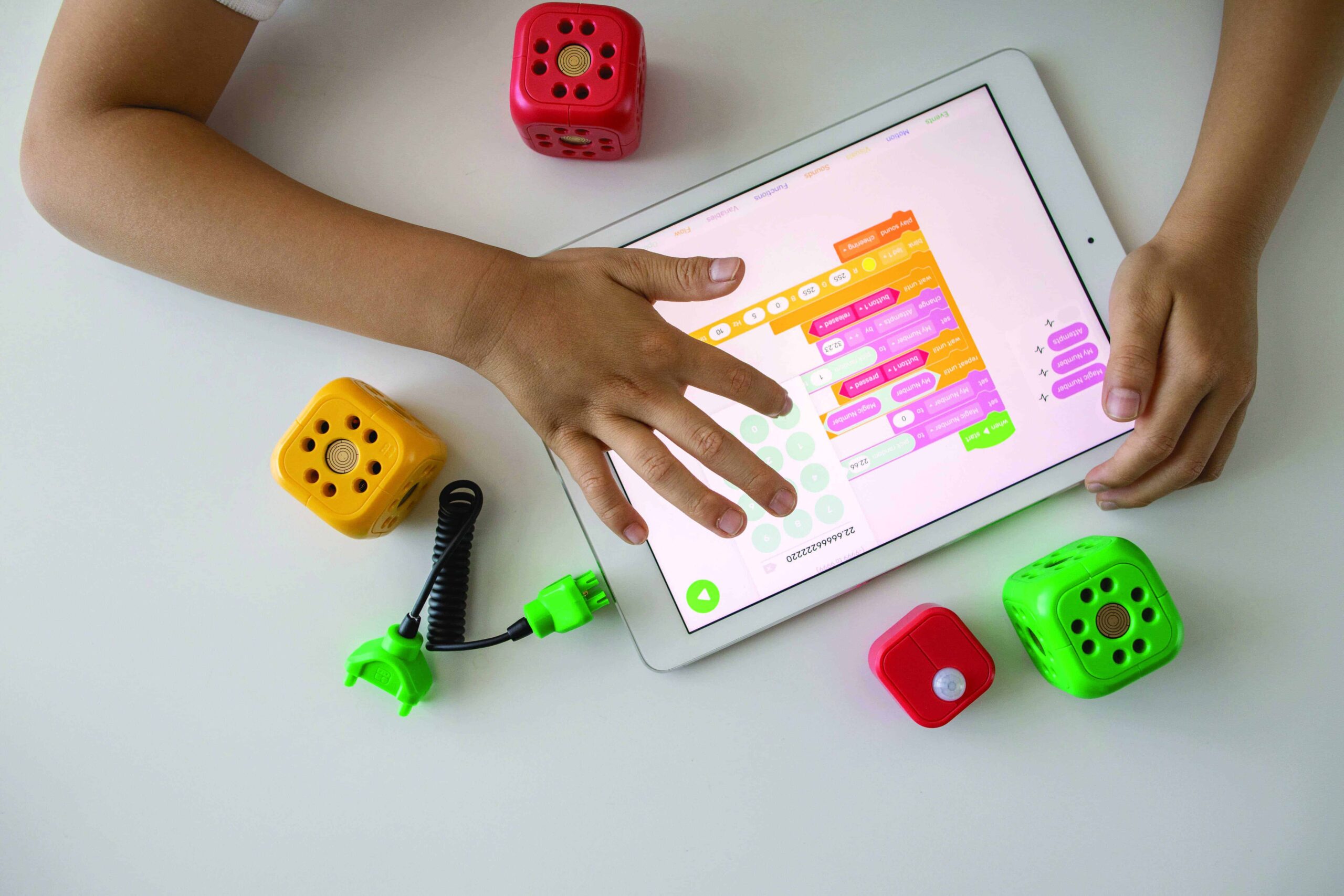Laura van den Engel
‘Screen time’ is not something that our parents worried about when we were children. Sure, they kept an eye on how much TV we watched, but TVs were just that – television. Cartoons, the news, or movies. Today however, tablets and smartphones have become so much more powerful in their reach. We can read books, work, manage emails and our calendars, check the weather, read the news, take and edit photos, do online shopping, look at social media. All through one device that your kids have in their back pocket.Maybe you yourself do not have a good grasp of computer technology and what your children might see online. With access to the internet, they can see pretty much anything. And studies have overwhelmingly shown that too much time on a smartphone or tablet, ‘screen time,’has detrimental effects to both kids and adults. Feeling overwhelmed as a parent? Rightly so. Here are some ways to manage screen time.
1.
Parents, watch your own screen time. We didn’t grow up with parents who were constantly checking their phones but that is what kids today see. We don’t yet know how this will affect them psychologically. Children learn by example and parents are the biggest influence on their kids’ behaviour, especially when they are at a young age. As parents our screen time is often spent productively but all our children see is our heads buried in our phones – they do not necessarily know that we are working, or ordering groceries, or reading a bible app. I try to leave my phone on the kitchen bench during the day so that I am less likely to check it so often or spend long periods of time using it in front of my kids.
2.
Delay screens for as long as you can. The research is clear that screen time in children can increase the risk of developmental delays, obesity, hyperactivity, anxiety and depression, and affect their sleep. Screen time is not advised at all for children under two, as their vision is still developing, and looking at a screen can negatively affect this. Many schools require students to use a tablet from year one, so screen time might be inevitable for your child. And once they startusing a device,the amount of time they spend on them is likely to increase gradually.
3.
No devices in the bedrooms. Anything can be accessed on the internet, and if you allow your kids to use their phones or tablets in the privacy of their own room you cannot monitor what they are exposed to. Kids can easily access disturbing content either through their own curiosity or by accident through an advertisement.The average age at which children are exposed to pornography is around 11. We need to protect our children from this, as pornography skews their view of sex as God created it.
4.
Limit internet access. Consider setting a time after which the wifi is turned off for the evening and have your kids hand in their phones or tablets. There are devices available that can turn off wifi at a certain time or when a data threshold is reached. Screen time shortly before bed can also adversely affect sleep, so your kids will benefit from this rule in more ways than one. Net Nanny and other internet control systems work by filtering content and blocking anything that is inappropriate or dangerous.
5.
Make certain days, times or events device free. Try ‘no phones during dinner,’ or when watching a movie as a family, or on Sundays. Family dinners have numerous proven benefits for kids including higher grades, lower chance of eating disorders or experimenting with drugs, improved language skills and better relationships with their parents. However, none of these results can be expected if everyone around the table is absorbed in their screens. Relationships form when we use our undivided attention, and even young children are aware that they do not have your undivided attention if you are talking to them but looking at your phone. Furthermore, the more screen time your kids have generally the less they are able to concentrate on other activities. While visiting Indonesia I was captivated by a two-year-old who spent hours happily playing by herself in the dirt with a stick. It was a stark contrast to kids in New Zealand who have bedrooms full of toys but complain that theyhave nothing to do. Boredom sparks creativity: let your children become bored.
6.
When your kids are old enough, teach them about the dangers of the internet. Our generation grew up aware of ‘stranger danger’, but our kids should be aware of this principle in relation to being online too. The internet is a dangerous place where an unsuspecting child can fall prey to bullies, scammers or predators. The more time they spend online, the higher chance they could be targeted.
What does the Bible say about screen time? Nothing directly. But Proverbs has plenty of warnings against laziness, such as in chapter 6- “Go to the ant, you sluggard! Consider its ways and be wise.” Sometimes our smartphones are used in an incredibly positive or productive way. But more often than not they are just a way for us to waste time, something our children can quickly learn themselves.
I would encourage you to think critically about screen time in your family. Is your device a tool to help you become more productive and efficient, or is it something that you are overly focused on and waste time with? A huge portion of the world’s screen time is taken up with social media and I would argue that an overabundance of time spent on social media can lead to us breaking many of God’s commandments. Social media in itself is not an evil thing, but it can lead to feelings of envy, lust, hatred and jealousy. We know it is addictive, therefore it also has the risk to become an idol in our lives.
The less interest we show in our devices, the less interesting or important they will seem to our children. Instead of reading your Bible app, get out the family Bible for your daily devotion or Bible study. Consider the words of Joshua 24:15, “As for me and my household, we will serve the Lord!” God has charged parents with the responsibility of raising up our children in the instruction and training of the Lord. This includes properly managing screen time in your house, so you can control what your children are exposed to and protect them.
Laura van den Engel is a member of the Reformed Church in Hukanui.
Photo by Robo Wunderkind on Unsplash

